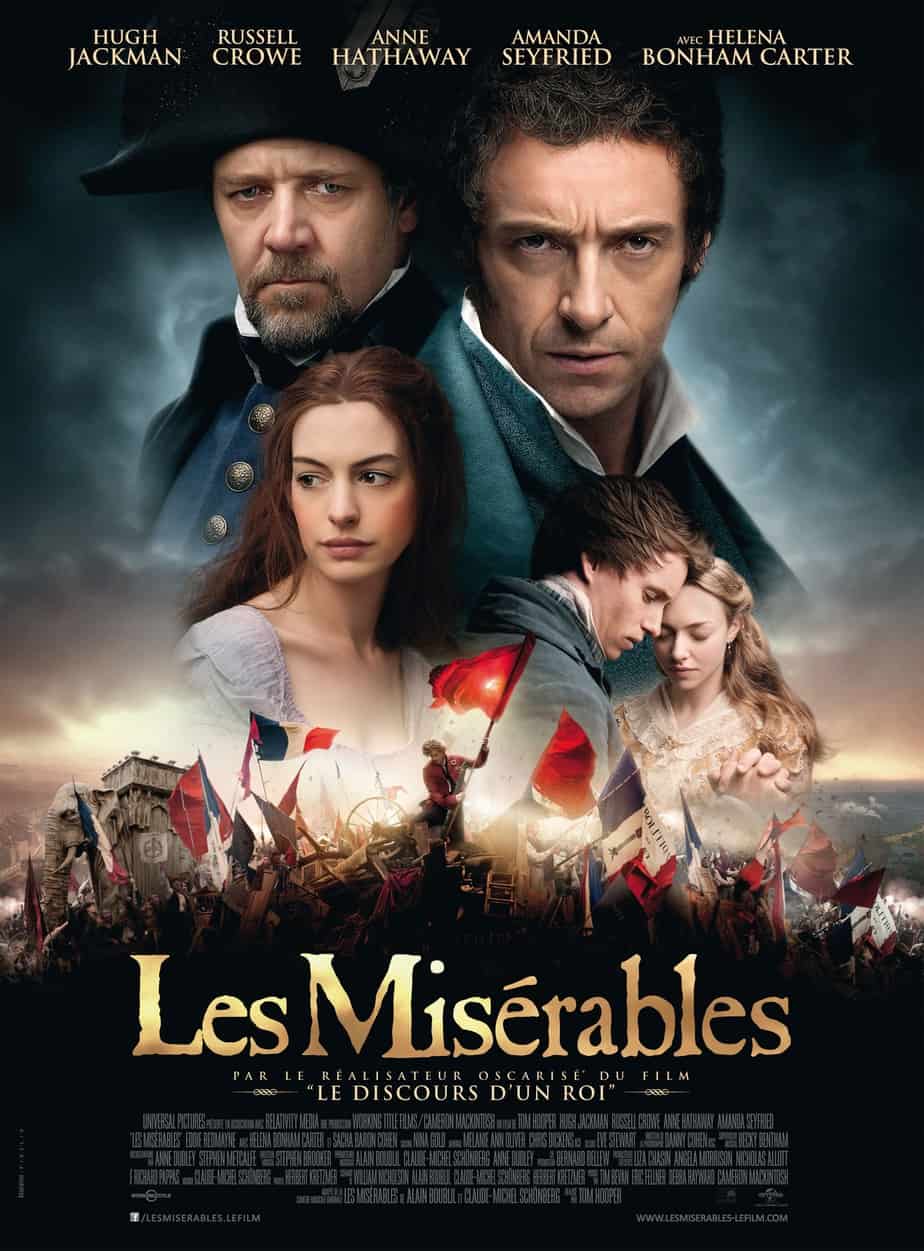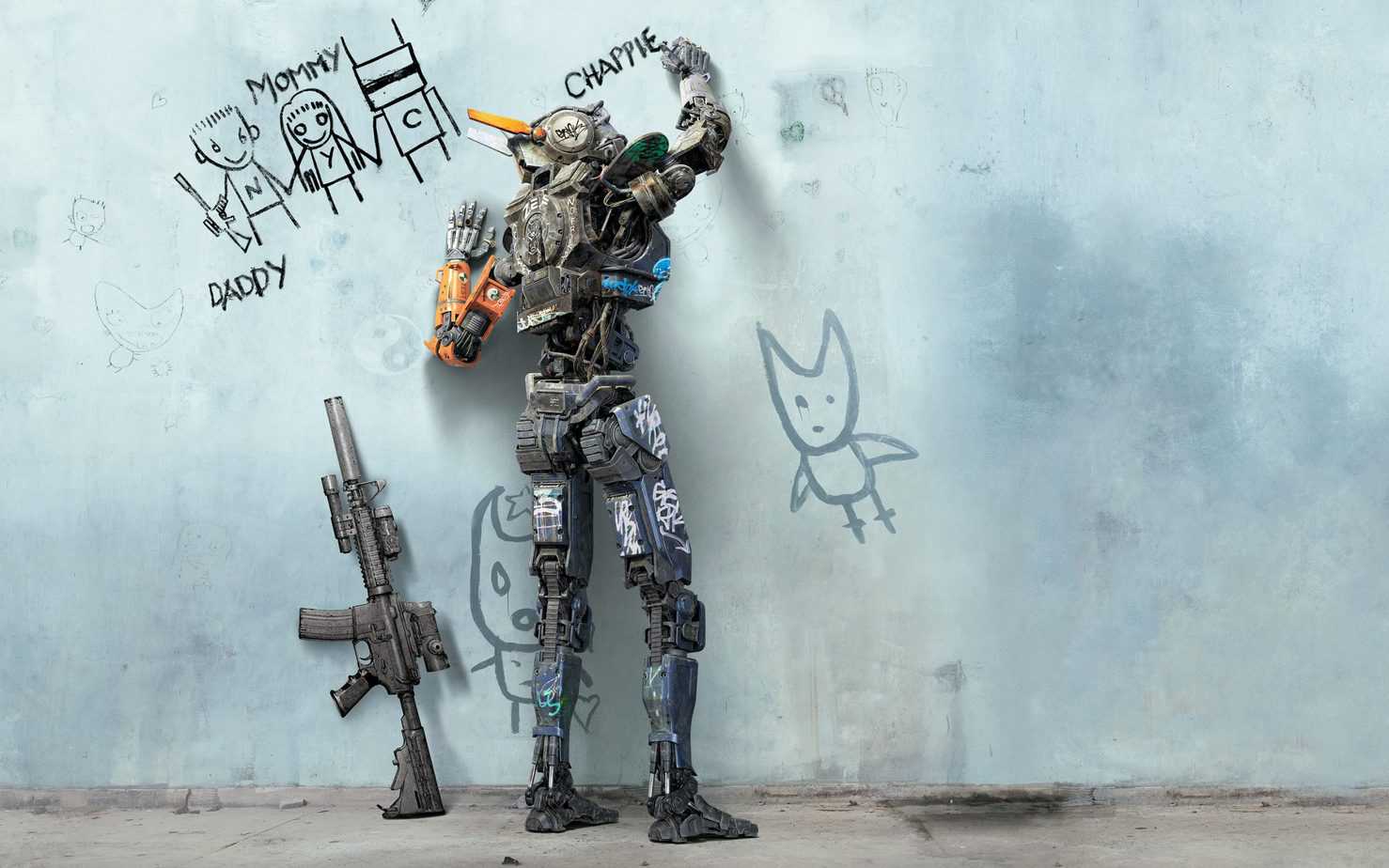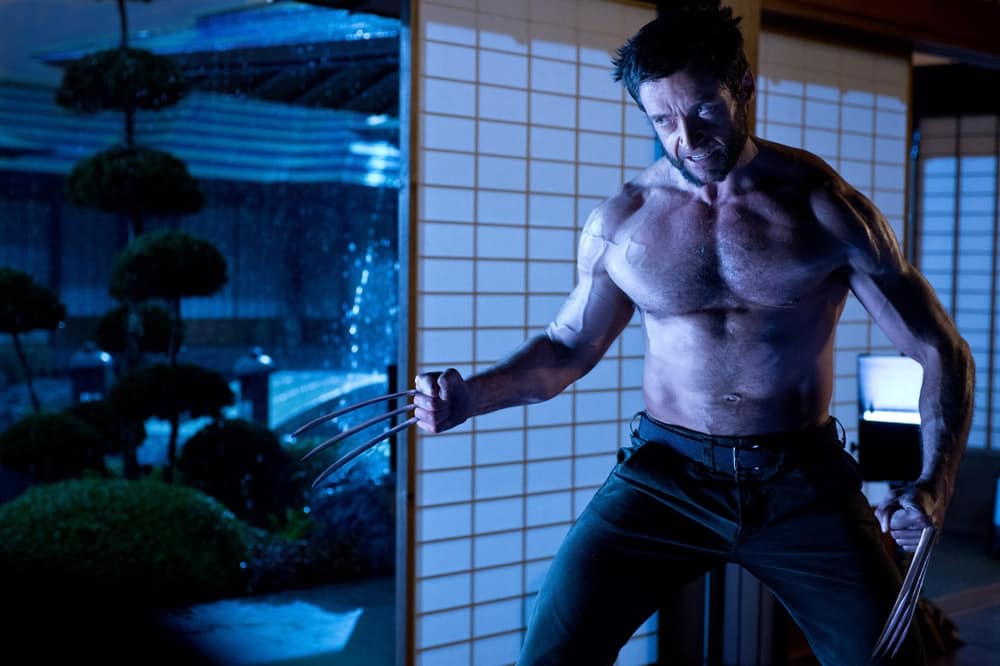
Movie Review: ‘Les Misérables’
All musicals aren’t bright, happy, and pretty to look it. We may think of the modern day musical as displaying a more cheerful tone like that shown in the TV show Glee or the films Hairspray or Chicago – the last musical released by Hollywood that was also elevated by Oscar buzz. So it should be noted that Les Misérables (or Les Miz as many often call it) paints an entirely different picture. Which in itself is one thing worth applauding right off the bat. It’s a musical that is less interested in glamour and big dance numbers and more interested in conveying the emotions of a group of struggling villagers. It may not be the most ideal subject to ring in the joyful Christmas holiday, but if the overwhelming popularity of Cameron Mackintosh’s stage production is any indication, than the movie shouldn’t have any problem drawing the crowds. But does the film capture the same magic as the Tony award winning show?
The film impressively opens on an elaborate shipyard in 1815. Jean Valjean (Hugh Jackman) is serving a 20-year imprisonment sentence for stealing some bread (Doesn’t that seem a bit excessive?) under the watchful eye of the stern policeman Javert (Russel Crowe). Once free, Valjean sets on a journey of redemption which leads him to take under his wing Cosette – the daughter of the homeless Fantine (Anne Hathaway). Their journey together brings about civil unrest amongst the town and forces Valjean to confront his past sins in life.
I went into the film not knowing much at all about the story; I’ve never seen a production of the show nor have I read the multi-volume book by Victor Hugo. There are many who are quite fond of the popular musical, but there are just as many like myself who will go into the film and be forced to look and critique for the first time the original source material as well as the movie itself. In the case of Les Misérables, both are extremely problematic. Aside from one original song that was written for the film – “Suddenly” sung by Hugh Jackman – Tom Hooper’s adaptation carefully adapts Cameron Mackintosh’s award-winning show. All of the showstopping numbers are included here such as “One More Day,” “On My Own,” and the most memorable number in the film “I Dreamed a Dream.” So many of these songs are so emotionally charged that it becomes a test for the audience to withstand and give over their own emotions to the characters. Over and over again we have to witness the pained expressions and exasperated stories of the characters to the point that you begin to become numb to it all. The music and lyrics become less like the rolling hills Jean Valjean treks across to escape his past and more like a plateau where all of the songs are sung at the same over-the-top emotional level. Very few moments in the film peak higher than the rest, which makes for a fairly stagnant 2 hours and 37 minutes. Some of this can be blamed on the original music and lyrics, but the performances and Hooper’s direction don’t help the situation either. Take for example the role of Javert. Here he is played by Russell Crowe in what seems like a casting decision that seems more inspired to appease the testosterone-driven male audience when their female partners no doubt drag them to see the film. It’s painfully obvious he is miscast. When not acting, Crowe has been the front man for a band for years in real life, but the style and depth of singing in Les Miz is something that Crowe never quite grasps. His typical deep and raspy voice is stretched to such a higher octave that it becomes even more apparent how uncomfortable he is in the role. The other issue with the character of Javert is that he isn’t portrayed as a very menacing character. He comes across as a guy who is just doing his job and who happens to grimace a lot. If Hooper was trying to make the character sympathetic than I feel he failed at that as well. You more or less forget about him altogether for a large chunk of the film until his final moments on screen that culminate in one of the most odd and distracting sound design choices I have ever witnessed in a film. Thankfully there are some powerful moments with the actors that who are properly cast that elevate some of the dragging sequences. Jackman carries his own throughout the film and displays a wide vocal range which the role demands. My issue with the character though is that he never felt like the main protagonist even though we are suddenly forced to remember this by the finale. In a performance that can really only be described as awe-inspiring is Anne Hathaway. When her gaunt face is put on display in the heart-breaking “I Dreamed a Dream,” you’d be hard-pressed to not shed a tear and feel that this sequence might be the best scene put on film in 2012. Who almost is just as magnificent is Samantha Barks as Eponine. The relatively unknown actress demands your attention as a poor girl who fights for the love of a young revolutionary fighter. Her rendition of “On My Own” is one of only a few highlights and memorable songs.
My biggest issue I have with the film has less to do with the story and structure of the source material and more to do with Hooper’s artistic decisions. A fine attention to detail has been made to create the grimy streets and decaying buildings. Dirt is seen under the fingernails of the characters and the clothing looks as worn and dirty as the facade of the sets. However, Danny Cohen’s cinematography rarely spotlights these exquisite details. Aside from a few establishing shots here and there – which all seemed to have been cleverly thrown in to the trailers for the film to convey the “wide” scope of the film – much of the film is composed in tight handheld shots on the character’s faces. This certainly works well in some of the more emotional numbers; it’s especially true in Hathaway’s breathtaking performance of “I Dreamed a Dream.” However, Cohen never changes the tone or scope of his camerawork, which makes for a repetitive experience and seems to not really benefit the craftsmanship that the art department has put into the film. If you blink you will miss it, but as a clever nod to the stage production origins, the tall and tawdry row houses that are seen in the background towards the later half of the film all are slightly off kilter and take on a handmade set design aesthetic. Again, this clever little detail is never fully appreciated due to the ugly and short-sighted camera-work. Could someone please give this film a tripod and a wide-angle lens?! I loved that the film didn’t shy away from spotlighting the ugly side of this period; even going so far as showing young children getting shot during a battle. The grim details could have been spotlighted more effectively if the film didn’t constantly resort to the ugly handheld photography. Shooting a movie and relaying the story to the audience can be a tricky act. You want to invite them into the scene and make them feel a part of the environment. A good photographer has to realize though that if you want the intensity of the “handheld” shots to work, you have to balance them with others so that when they are on display, they have more of an impact. The impact is lessened – and becomes quite annoying and daunting – if one style is used for almost two and a half hours.
All that being said, there are quite a number of things worth applauding in the film. The casting of several of the leads are spot on. Hugh Jackman captures the heart of a man searching for redemption. Aside form Amanda Seyfried who is instantly forgettable, it is the female leads that make the biggest impact on the film. Les Misérables is a complicated affair. I feel both torn over the film and moved by it. The highlights at times make up for an unimpressive whole. If I close-in on specific songs or elements of the film, I can’t help but be impressed by this adaptation. Yet, if I take a few steps back and view the film as a whole, I begin to see the failures and notice a film whose parts don’t equate to a satisfying whole. Maybe if I just look at the film close-up similar to the cinematography on-display in the film, I can forget about all that makes this not as magical as the hype would lead me to believe.


